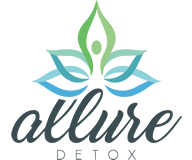Dehydration is the condition caused by the loss of too much bodily fluid. This happens when you’re losing more fluids than you are taking in, and the body doesn’t have enough fluids to work properly. The symptoms of dehydration can be hidden beneath other troubling symptoms. You may not realize the effect that dehydration is having on your body when you are undergoing drug detox and feeling withdrawal symptoms.
If you notice decreased urine output, inability to sweat, fainting, sluggishness, confusion, or heart palpitations, you might be dehydrated. If any of these are present while also noticing that you are dizzy, weak, increased thirst, have dry eyes, dry mouth, or have a swollen tongue, then you are experiencing dehydration. Dehydration during detox happens quickly because of expended water, vomiting, and diarrhea.
Why is it Dangerous to be Dehydrated During Drug Detox?
As mentioned, dehydration symptoms are like those of withdrawals, and these being confused leads many addicts to relapse back to substance abuse. You can experience headaches, dry mouth, and seizures when you are dehydrated. The amount of energy the liver and body use to expel the toxins left over from substance abuse through urine is considerable. The addict will not be in the mood to consume more fluids than they are accustomed to. Poor health can inhibit the recovery process especially if the individual struggles with mental illness.
Not remaining hydrated will inhibit the liver’s mechanism it needs to be efficient in running normal detoxifications processes and will result in the body not being able to rid itself of toxins. Being dehydrated will increase cravings and prevent the system from resetting itself back to normal. The National Institute of Health explains that the body is made up of sixty percent water and that water is a significant component of every cell and is involved in a wide range of fundamental roles.
Without any intake of fluid, death can occur after three to five days, depending on environmental conditions such as temperature and activity levels. (NIH)
How to Stay Hydrated During Drug Detox?
The recommended amount of water an individual should consume is 0.5-1 ounce of water per pound of body weight daily. But when someone is detoxing, they sweat much more than the regular person and therefore need twice the amount of water, which would be 1.5-2 ounces per pound of body weight daily. If you are medically assisted during your detox process you might be receiving fluids intravenously, but you should still consume a significant amount of fluids. Try to avoid diuretics such as coffee.
Choose foods that are high in fluids like juices and fruits. If you notice hunger it could be a sign of dehydration, so attempt to consume liquids with meals and snacks. If you are performing physical activities increase your water intake. First thing in the morning before drinking anything else have a large glass of water and make sure the last thing you consume at night is also a large glass of water. Avoid high levels of sodium such as sodas. Try decaffeinated tea or other drinks to break the dullness of only drinking water.
How Can Allure Detox Help You?
If you or someone you know is fighting with addiction, Allure Detox provides a safe and comfortable environment for you to begin your journey in recovery, and we monitor hydration levels. We offer a personalized treatment plan for everyone to fit their ailments and needs with the help of doctors and therapists. Allure Detox provides different therapies and treatments to maximize each person’s success by facing everyone’s health and happiness head-on.
We help with your journey after you’ve completed your detox treatment. Our addiction professionals will help you plan your aftercare including outpatient therapy and residential treatment. Addiction isn’t easy to face. Luckily you do not have to face it on your own. Take the first step towards recovery by reaching out to one of our confidential professionals at Allure detox. Now is the time to change your life. Let us help you do it.


